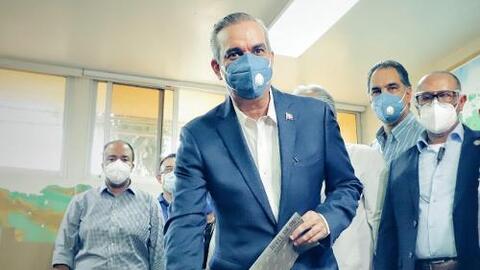

Here’s some good news for a weary region: voters in the Dominican Republic have just proven that free elections in Latin America and the Caribbean are possible despite COVID-19, and, further, they have now demonstrated by voting that ruling class corruption and impunity will no longer be tolerated.
Indeed, while many observers were consumed by U.S. politics over the Independence Day weekend, the Dominican Republic quietly celebrated its presidential and congressional elections on July 5 th, and the results will directly impact the direction of the country and its priorities moving forward.
President-elect Luis Abinader now faces the hydra-headed challenge of addressing corruption, impunity and COVID-19 right off the bat. If he doesn’t, he may find that he, too, is cast off by frustrated voters who have simply had enough of the political self-dealing and mismanagement that preceded him.
Opposition candidate Abinader from the Modern Revolutionary Party (PRM) was elected with 52% of the vote, topping ruling party presidential candidate Gonzalo Castillo’s 38%. Abinader’s triumph puts an end to the 16-year rule of the Dominican Liberation Party (PLD).
True, the PLD delivered high economic growth, but that was not sufficient to compensate for voter grievance over the high levels of corruption and impunity. As stated by the Mark Penn/Stagwell poll published last May, three quarters of surveyed voters believe that during the current government, corruption has increased or stayed the same.
The incoming government is taking power in the midst of the pandemic and will have to prioritize two sectors simultaneously: healthcare and economic recovery. As a result of a sharp fall in key foreign exchange producing sectors due to lockdown measures, the Dominican economy is expected to contract by 1% in 2020 according to the IMF, while the World Bank projects 0% growth, down sharply from the high 6.1% year-to-year average in the preceding five years.
Tourism, for example, one of the country’s main sources of foreign exchange income, has been deeply affected, down 44.9% in the first quarter of the year, compared to the same period in 2019.
Perhaps even more challenging, Abinader faces sky-high expectations based on promises he himself made to the Dominican people. Throughout his campaign, Abinader committed to ending corruption and impunity. He’ll have to tackle unresolved cases including Odebrecht, which has languished in court since May 2017 with little to show for the effort.
He won’t have much of a honeymoon, either. On election night, as Abinader was giving his victory speech, his followers chanted, “We want them in jail!” Social media was aflame; many expressing sentiments such as, “If there are no prisoners by January, we will take the streets.” Others posted, “If he fails, he leaves.”
At the same time, citizens have clearly indicated their expectations of equal treatment without favor of party or position to those who commit illegal acts.
To fight impunity, Abinader has proposed the appointment of a politically independent Attorney General to end government control of the judicial system. He has also promised greater transparency in government contracting and purchasing. These are tall orders, taking on entrenched interests and practices, and he will need the continued support of the people to succeed once inaugurated on August 16.
Today, many Dominicans feel proud and responsible for what they have achieved in this election. From Marcha Verde, a civic movement created to fight impunity in response to the Odebrecht scandal, to the February protests that brought thousands of protesters to Santo Domingo’s iconic Plaza de la Bandera in response to the suspension of the municipal elections, Dominicans have acquired a sense of empowerment for their future as they feel that they were the ones who accomplished this fight to achieve long-hoped-for progress in the fight against corruption and impunity.
No doubt the president-elect has big challenges ahead, but making sure he meets his promises will perhaps be the most important one for the Dominican people. The future of the nation is now playing out before our eyes.
If Abinader fails to make early, tangible progress on the agenda he himself has promoted, voters—including many of his own supporters—may well find a way to move on from him, too.
María de Lourdes Despradel is a Program Associate with the Council of the Americas in Washington. A native of the Dominican Republic, she will begin graduate school at Georgetown University in the Fall.
Univision
No hay comentarios.:
Publicar un comentario